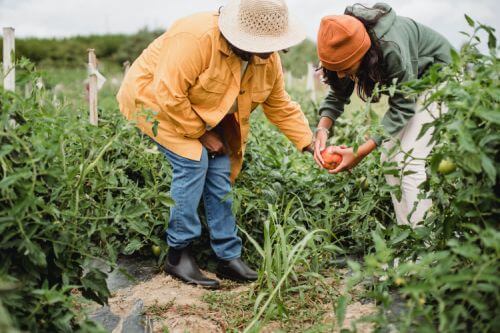Getting To Know Your Garden

As gardeners, we spend a lot of time tending to our gardens, planting, pruning, and nurturing our plants. However, to truly make the most of our gardening experience, it's important to take the time to get to know our gardens. In this blog post, we'll explore in detail the importance of getting to know your garden and offer tips on how to make the most of your gardening experience.
- Observe the natural elements: The first step in getting to know your garden is to observe the natural elements that make up your garden. Take note of the direction your garden faces, the amount of sunlight it receives, and the type of soil and drainage. Understanding these elements will help you determine the types of plants that will thrive in your garden and how to care for them. Additionally, pay attention to the natural features of your garden such as the slope, rocks, and existing trees. These elements can play a big role in determining what types of plants will thrive in your garden.
- Monitor the weather: Another important aspect of getting to know your garden is monitoring the weather. Keep track of the temperature, precipitation, and wind patterns in your area. This will help you understand how the weather affects your garden and how to prepare for extreme weather conditions. Additionally, pay attention to the temperature changes from day to night, and from season to season. This information can help you choose plants that are well-suited to your area.
- Identify the pests and diseases: Pests and diseases can be a major problem in any garden. Getting to know your garden means identifying the pests and diseases that are specific to your area. Understanding which pests and diseases are common in your area will help you take steps to prevent or control them. Additionally, it's important to keep an eye out for any unusual symptoms or changes in your plants, and to act quickly if you suspect a pest or disease problem.
- Understand the life cycle of your plants: Understanding the life cycle of the plants in your garden is essential in getting to know your garden. Knowing when a plant flowers, fruits, and goes dormant can help you plan your gardening tasks accordingly. Additionally, it's important to understand the growth habits of the plants in your garden, such as their mature size, growth rate, and pruning needs. This information can help you choose plants that will fit well in your garden and make sure that your garden is always looking its best.
- Keep a gardening journal: Keeping a gardening journal is an excellent way to get to know your garden. Record the plants you have in your garden, the date you planted them, and any observations you make about their growth and health. This will help you keep track of the progress of your garden and make better decisions in the future. Additionally, keeping a journal can help you to identify patterns and trends in your garden such as which plants do well in certain areas, or which plants tend to have more pest or disease issues.
- Visit other gardens: Visiting other gardens is a great way to get inspiration and ideas for your own garden. Take note of the plants, design, and maintenance techniques that you find appealing and consider incorporating them into your own garden. Additionally, visiting other gardens can give you an opportunity to see plants in person that you might not have seen before, and to get an idea of how they might look in your own garden.
- Get to know the community: Joining a local gardening club or community garden is an excellent way to get to know other gardeners and learn from their experiences. It's also a great way to share your own knowledge and experience and make new friends who share your passion for gardening. Additionally, getting to know your community can help you to learn about the resources available to you such as local nurseries, gardening workshops, and volunteer opportunities.
Getting to know your garden is an ongoing process, but by taking the time to observe, monitor, and learn about your garden, you'll be able to make the most of your gardening experience. Additionally, don't be afraid to experiment, try new things, and make mistakes. Every gardener is different, and by trying different techniques and styles, you'll find what works best for you. Take the time to observe, learn and understand your garden, and you'll create a beautiful and thriving garden that you'll enjoy for years to come. Happy gardening!